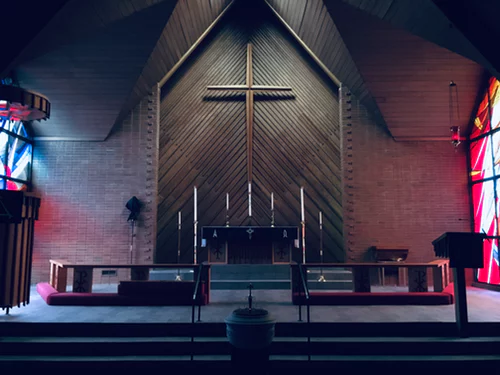I remember how, when the internet began, some Christians defined Christian websites as "online churches." Similarly, the cloud gatherings due to the coronavirus crisis are also being called "online churches".
This time the name is closer to the substance of "church," but the new model is neither a challenge to traditional churches nor a change. Rather, it should be considered as a natural product under a special circumstance, a combination of church and fast-growing high technology and information.
The model is destined to be recorded in the history of the Chinese church, and the significance will be unprecedented in transcending and changing traditional worship models.
The model is being carried out as a long-distance gathering using networks, computers, cellphones, and software. through which believers are engaged in worship through Bible reading, praise, prayers, and sermons. In contrast with physical churches, "online churches" are innovative and effective.
It may be too early to determine whether the new model can replace the traditional one, but we have to admit that the "iceberg" influence probably implies tremendous effects.
As history evolves based, it often goes against our own designs or imagination. However much humans contribute to it, the model will probably develop into a form different than we wish because everything is in the hands of God.
The "church" we often talk about actually refers to "church buildings." In fact, the concepts and meaning of "church" and "church building" are different. A "church building" is a physical place of worship, while a "church" is a spiritual gathering of believers who meet and worship together. If Christians have God in their hearts, their gathering in the church building becomes spiritual, at which point we can call a "church building" a "church".
From this perspective, the growth of the "online church" is a gift from God during this special period and is indeed a "church." The objection to "online churches" may result from the bondage of a thousand years of tradition or habit. Traditions tend to become unchanging or even rigid, isolated from the outer world. They may deviate from their original spirit and vigor, becoming "self-sufficient" ivory towers.
The value of tradition mainly lies in whether it helps us to follow Christ as the way, truth and life. Tradition must not become a moldly antique or shrine that we worship as the way, truth, and life instead of Christ. Nor should tradition leadus to merely regard God as an idol or a tag of faith. Rather, authentic traditions are rich heritage helping us move toward life. We don't need to reject "online churches," argue about what to call them, or abandon them when traditional church gatherings resume. We can learn important lessons from this experience. When computers and networks first appeared, our churches turned a blind eye. Even though some Christian websites later developed, rarely were they as alive as secular ones.
With the rise of We-Media, we are once again falling behind the secular media. Churches have few official accounts on these platforms and often employ mediocre technology and image-text skills. The coronavirus outbreak also is showing how many churches are unable to use networks. But the place they fail to occupy will be eventually occupied by others. God's tabernacle should cover every corner of the world and not leave any space for cults or the devil.
The church ought to keep pace with the times. Keeping up with the times does not mean following the secular world, but keeping separate from it. It's extremely dangerous to put faith in the world.
Due to the virus crisis, telecommuting, telemedicine, distance education and online schooling have thrived. This will becomethe new normal even after companies resume work. If we continue to remain complacent and conservative, the church will be forever a pool of stagnant water which will be completely marginalized by society, and will fail to carry out its mission of evangelism.
Some mainstream local churches are comprised of mostly middle-aged and elderly members because they don't attract young people. The "online church" belongs to the new generation, which should lead into the future.
Although some prophets argue that "online churches" will replace physical churches, the future is uncertain and waits for God to determine it. In spite of their many shortcomings, "online churches" will change in accordance with the development of information and technology, and also with our operating skills. Perhaps the new model is not suitable for megachurches, but suggests a good way forward for house churches.
- Translated by Karen Luo












